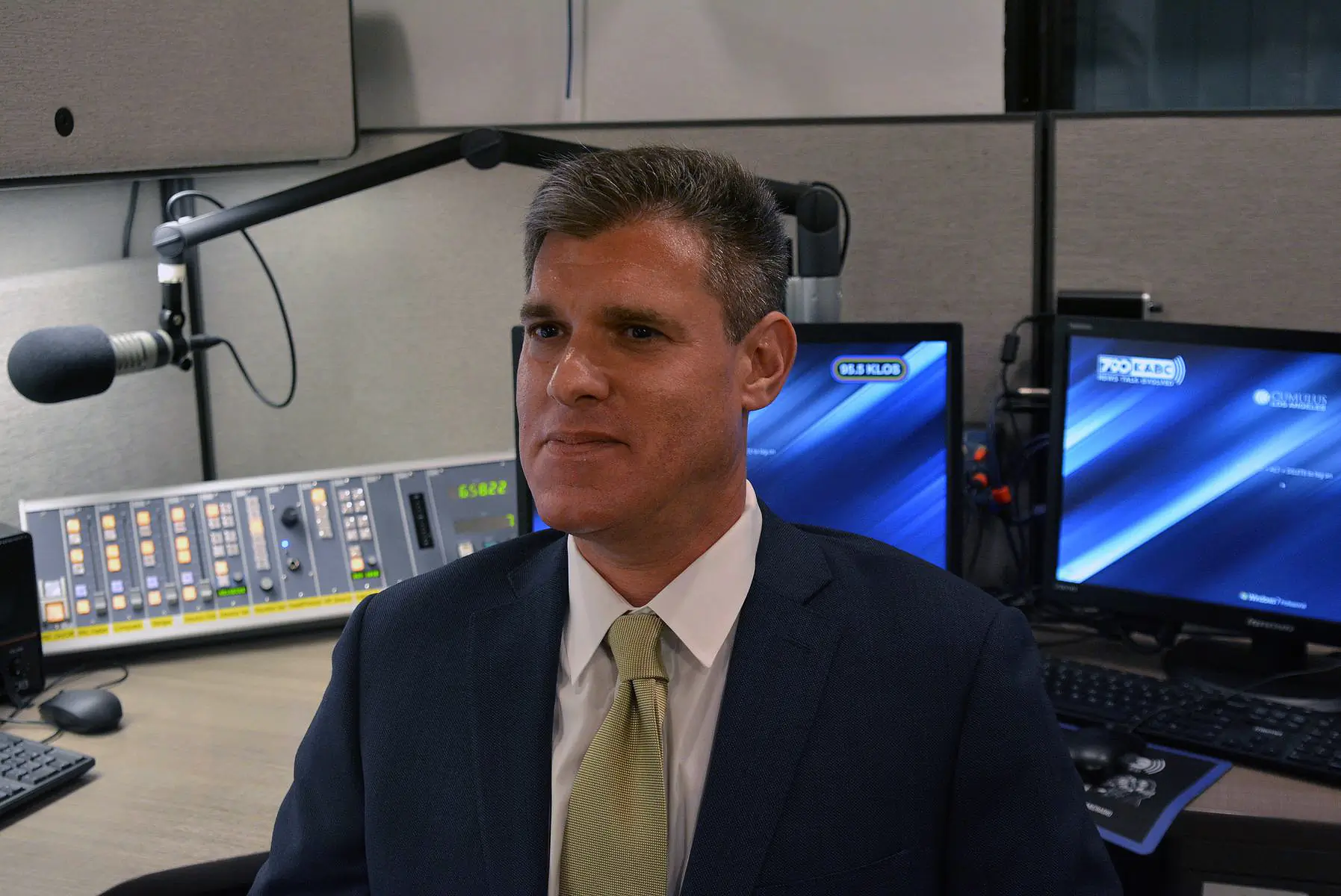EMPLOYMENT LAW ISSUES
Sundays from 8 AM to 9 PM, Karl Gerber of the Employment LawyersGroup can be heard on 105.1 FM. His show is called the Karl Gerber,Workplace Lawyer Show. It has been on 105.1 FM since 2022, butstarted in 2018. After recording breaking runs on KABC 790 AM forfour years, he transitioned to 94.7 The Wave, and ultimately 105.1FM. Listen to weekly shows going back to 2022. Earlier shows can be listened to, oftenwith visuals on Youtube.
 Episodes of the Karl Gerber, Workplace Lawyer Show discuss:. The differences in being in arbitration, federal, and state court.. The importance whether an arbitrator, judge, or jury will decidean employment case.. What percent of juries must agree in federal court vs. statecourt in order to win. Exhausting administrative remedies when, where, and who
Episodes of the Karl Gerber, Workplace Lawyer Show discuss:. The differences in being in arbitration, federal, and state court.. The importance whether an arbitrator, judge, or jury will decidean employment case.. What percent of juries must agree in federal court vs. statecourt in order to win. Exhausting administrative remedies when, where, and who
Call (818) 783-7300 to talk to Karl Gerber about employment law
EXHAUSTING ADMINISTRATIVE REMEDIES FOR WAGE CASESAND EMPLOYMENT DISCRIMINATION
Karl Gerber said the following about the need to exhaustadministrative remedies in employment cases, in Episode 61 of theKarl Gerber Workplace Lawyer Show.
 There is a formality is that you have to do that is called exhaustadministrative remedies. You don't have to do that for a case forwages. You can go directly in court. PAGA is the exception. And that'swhy I encourage people to do that. I encourage them not to file withwhat you may call the labor board. You may also call them things likeThe DLSE or DIR (Director of Industrial Relations).Cases for discrimination and harassment, however requireadministrative exhaustion. Those are cases for employmentdiscrimination or harassment based on age, sex, race or disability,things like that, sexual orientation, different medical conditions, familymedical leave rights, sexual harassment. All of that is something thatyou can sue for if you can prove that you had a bad thing happen toyour work because of that.
There is a formality is that you have to do that is called exhaustadministrative remedies. You don't have to do that for a case forwages. You can go directly in court. PAGA is the exception. And that'swhy I encourage people to do that. I encourage them not to file withwhat you may call the labor board. You may also call them things likeThe DLSE or DIR (Director of Industrial Relations).Cases for discrimination and harassment, however requireadministrative exhaustion. Those are cases for employmentdiscrimination or harassment based on age, sex, race or disability,things like that, sexual orientation, different medical conditions, familymedical leave rights, sexual harassment. All of that is something thatyou can sue for if you can prove that you had a bad thing happen toyour work because of that.
The bad thing generally needs to be a job termination. If it's somethingless than that, asking a contingency fee lawyer to get involved, I'm notsure. The exception is obviously sexual harassment that is severe andpervasive. That's something that can cause a lot of damage to. Thesame with racial harassment that is severe and pervasive. We getinvolved in the case.
Even if there is no job termination, sometimes there could be disabilityharassment, too. There could be age harassment. I have not had aage harassment case in a long time. There could be religiousharassment too. I had a pretty good case like that that settled.Religious harassment can happen too.
If you've got to sue for something that is illegal, discrimination,harassment, not that I think my boss is harassing me because they'recoming into my office every 5 minutes and I just wish they weren'tcoming to my office so much, you have to do what's called exhaustadministrative remedies.
As a lawyer, I do it very quickly. I have my own account with theCalifornia Civil Rights Division. I go in and I do it for my client online,and I ask for what's called an immediate right to sue letter, a right tosue a letter that will be issued to my email when I'm done correctly,filling out the forms. At that point I can go and sue for these violations.If you go to the EEOC, it does not work that way. I don't think theyhave a process of getting that automatically.
If you need to sue for employment discrimination call (818) 783-7300
EEOC NOT RIGHT PLACE FOR CALIFORNIA EMPLOYMEMTDISCRIMINATION
Also in Episode 61 of the Karl Gerber, Workplace Lawyer show KarlGerber addressed the fact the EEOC is not the proper place to sentclients. Here is what he said:
I get at least ten calls a week at the Employment Lawyers Group frompeople that filed at the EEOC. They did it without a lawyer becausemaybe they've heard of the EEOC. I had heard of it in college, and it'sbeen around a long time. And we used to know this organization of theDepartment of Fair Housing and Employment in California, but itchanged its name to the California Civil Rights Department, which Ithink was a huge mistake because it just created confusion.If had your aunt or your parent that had experience with somethinglike this and they went to school and they knew it was the DFEH, well,you know, people knew what it was and the name was changed thename was changed which confuses a lot of the population. The CCRDis the place to go. The EEOC is not. The EEOC is going to beoperating on federal discrimination statutes which are less favorable tothe employee.
The California versions employment laws are all better, and the onlyexception is that for family medical leave, you don't need a right to sueladder for the federal FMLA, but you know, under federal FMLA, youcan't get emotional distress damages. So if someone gets firedbecause they have a serious medical condition, they take off becausethey have a broken foot for, you know, two months of healing and theywant to come back after two months and they're fired. If their job is notheld open, or they are given an inferior position that pays $15,000 ayear less that is very distressing for them because they love theircoworkers. They say I liked working at the company. They workedthere for six years or 16 and they can't bring a case for emotionaldistress damages. So, you know, that's not the place to go.And the other thing with the EEOC is this concept of you were givenpermission to sue after you exhausted administrative remedies. Youhave a much shorter time to actually bring your lawsuit than if you goto the state version. So, you know, this is just an example of being inthe right forum. And if you come in with a EEOC right to sue letter, youwent for the EEOC.
You also may find yourself in federal court because you're suing andthe federal remedy is and federal court is not really a great place to befor these kind of cases. Federal court is not favorable to employees.It's really for big business disputes. It's for some types of, you know,criminal cases that are federal crimes. I don't think it is really wellsuited for individual employment cases.
And if you ever have an appeal, I did in Ninth Circuit Court of Appeals.That's an appeal of a federal court decision. And it's the next level ofappeal before the United States Supreme Court. They don't reallycare a lot about these employment cases. They're getting cases aboutinteresting immigration rights and, national policy. They're just notthere for.
The other thing is the federal court is not there to make state law. Andso if you're in federal court on what really is a state case, they mayeven say we want to certify this issue to the California Supreme Courtto make a ruling on how to interpret the law because we don't want tointerpret California law.
But guess what? Employers want you to be in federal court becauseit's harder for you there. You have to have a unanimous jury. InFederal Court, the judges do not have to have a hearing on a motion.If there's a motion to throw out the case, the judge can decide, I'm notgoing to have oral argument on that. I'm going to decide it on thepaper.
You hope that if that's serious of a motion, the court would want toactually have oral argument because something may have come upbetween the time when the lawyer submitted the paper and the datesfor argument or, maybe the judge got something wrong and youwanted to tell them during what we call a colloquy in court, where thecourt is saying why they are ruling and you're trying to begin youropportunity to convince the court to rule in your favor.But the truth is, once the court has made up its mind on these legalissues for these motions, oral argument is almost always a completewaste of time. They generally don't change their tentative rulings. Idon't know why that is. I haven't been a judge. I have not talked toenough judges about this. It might be a lot of these judges have notadequately read the papers and they're relying on what a researchattorney or a law clerk has written.
If you're a judge and you have a whole bunch of motions every daythat would take three or four hours to decide each, and there are six orten of them on calendar it is almost impossible to read all the papers.That might be why judges generally stick with what's called theirtentative ruling, and sometimes it's just erroneous.I have one right now where I'm going to appeal it because I think thatthis judge just really got it wrong. I mean, that can happen. But mypoint that I want you to follow is that it makes a difference where yourcase is going to be heard. And it really isn't to your benefit to be tryingto sue.
Under federal law, state law is much more favorable and it's morelikely that you're going to stay in state court. If you're using state law,then you're trying to use that or a lot. And the federal laws are theminimal amount of protection. That's what they're referred to, theminimum amount of protection for labor laws. It is up to the states tocome up with more expansive laws and California has done that.

